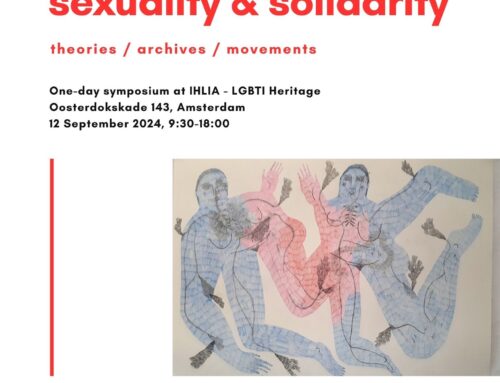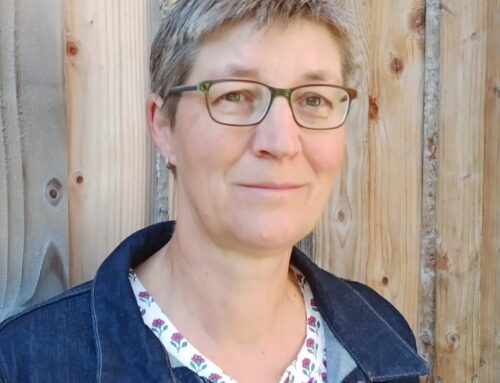 The Netherlands Research School of Gender Studies in cooperation with her partners organises the DOING GENDER Lecture Series. These lectures stress the importance of doing gender work combined with an active involvement in the practice of gender theory and research. The concept of DOING GENDER supports a hands-on approach to gender issues in the sense of social and political engagement with the new forms of gender inequalities that are taking shape in the world today. The lecture series wants to give space to the new generations of gender theorists and practitioners and to perspectives that innovate the field and do gender in new ways. Key is the notion of doing gender: what is the state of the art definition of gender? How do contemporary scholars and activists utilise this definition?
The Netherlands Research School of Gender Studies in cooperation with her partners organises the DOING GENDER Lecture Series. These lectures stress the importance of doing gender work combined with an active involvement in the practice of gender theory and research. The concept of DOING GENDER supports a hands-on approach to gender issues in the sense of social and political engagement with the new forms of gender inequalities that are taking shape in the world today. The lecture series wants to give space to the new generations of gender theorists and practitioners and to perspectives that innovate the field and do gender in new ways. Key is the notion of doing gender: what is the state of the art definition of gender? How do contemporary scholars and activists utilise this definition?
On Wednesday February 10, 2021 Phoebe Kisubi Mbasalaki will give the Doing Gender Lecture Collaboration across structural borders: A decolonial encounter with a group of sex workers.
Lecture: Collaboration across structural borders: A decolonial encounter with a group of sex workers
I will be engaging with this conversation through the rubric of collaboration as a praxis. I have been grappling a lot with collaboration across borders (structural borders), especially because the current project I am working on is embedded in this. What is at stake when institutions with historically institutionalised power such as elite universities like the university of Cape Town where I am based collaborate in research projects with subaltern communities like sex workers, who really benefits?
Starting with the student protests (#RhodesMustFall and #FeesMustFall), I will locate the first cross-border collaboration in this moment. I will unpack this moment, which Mbembe characterised as a ‘negative moment’, one that is experienced in all large scale societal changes; “a negative moment is a moment when new antagonisms emerge while old ones remain unresolved… when contradictory forces – inchoate, fractured, fragmented – are at work but what might come out of their interaction is anything but certain” (Mbembe, 2015, p.2).
A negative moment, however, also creates the conditions for a deep re-examination of current hegemonies and for a re-imagining of how to shape the outcome of that interaction. Secondly, I will delve into my current research on the GlobalGRACE project, a collaboratory research between the African Gender Institute & the Centre for Theatre, Dance and Performance Studies at the University of Cape Town with the NGO SWEAT (sex workers advocacy and educational task force). This project investigates gender and cultures of (in)equality, working with theatre and performance as the main methodological approach. Noting the health of sex workers, physical and emotional − in a legally and structurally constrained environment − is of particular concern, this research considers gendered inequalities through a holistic approach to wellbeing that recognises the specific demands of the contexts in which sex workers work. Working with butoh principals, a form of Japanese dance theatre whose techniques offer an embodied praxis, it draws on embodied cognition and how this manifests through emotion. Butoh techniques, which call for the body to move in non-conventional ways, speak to how the state of the body modifies the state of the mind and by extension, emotions. With this framing, I offer some insight into embodied cognitions that challenge gendered inequality and injustices with a group of sex workers in Cape Town.
Biography
Phoebe Kisubi Mbasalaki is a post-doctoral research fellow on the GlobalGRACE project (https://www.globalgrace.net) housed at the AGI and the Centre for Theatre, Dance and Performance Studies (CTDPS) – University of Cape Town as well as the NGO – Sex Workers Advocacy and Educational Task Force (SWEAT). She is also a lecturer on the gender studies program at the Africa Gender Institute (AGI) – University of Cape Town. She holds a doctorate in Gender Studies from Utrecht University in the Netherlands. Her research interests are in critical race, gender, class, sexuality, public health as well as decolonial thought and praxis.
Details lecture:
Doing Gender Lecture Phoebe Kisubi Mbasalaki
Wednesday February 10, 2021
Lecture: Collaboration across structural borders: A decolonial encounter with a group of sex workers
Time: 15.00 – 16.30 hrs
Location: online via Teams
Chair: Prof. Dr. Rosemarie Buikema
Registration: nog@uu.nl ; link will be sent after registration.






